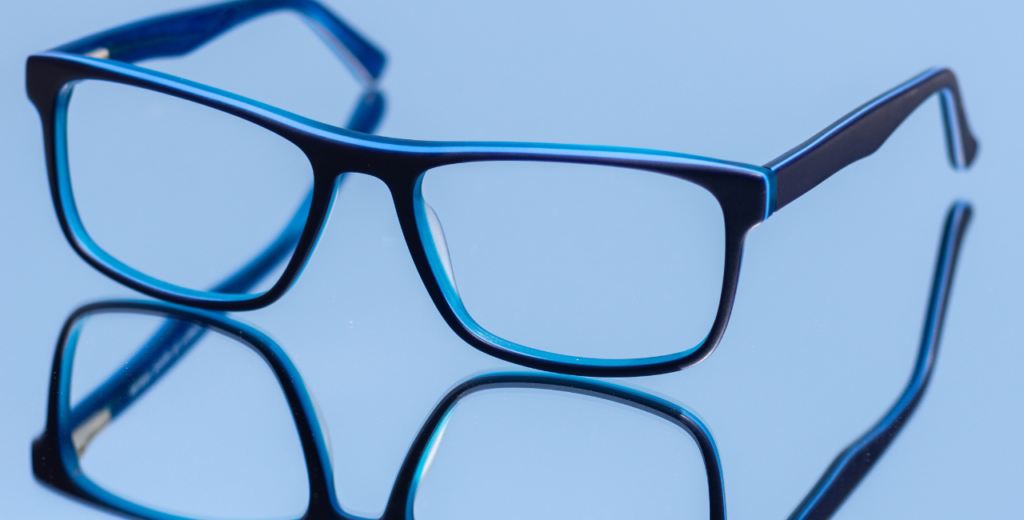Our eyes are often one of the most overlooked aspects of our health, yet they are one of the most critical. Whether you’re working at a computer all day, reading, or even just driving, your eyes are constantly at work.
If they’re not functioning as they should, it might be time to consider eye glasses.
In fact, there are several signs you need glasses that you should be aware of to ensure you’re maintaining optimal eye health. If you’ve noticed any changes in your vision, it’s important to seek help sooner rather than later.
Here are 9 major signs that you may need glasses.
1. Frequent Headaches
Frequent headaches, especially those that start behind the eyes or occur after visually intensive activities, like reading, using a computer, or driving, can be a major sign of vision problems.
The strain on your eye muscles as they work harder to focus, especially if you’re dealing with uncorrected vision issues like nearsightedness or astigmatism, often leads to discomfort. These headaches typically come on gradually and worsen by the end of the day.
If you notice recurring headaches without any other clear causes, it’s time to see if eye glasses can relieve the strain on your eyes.
2. Squinting to See Clearly
Squinting is a natural reflex when your eyes struggle to focus on an object. When you squint, you reduce the amount of light entering your eyes, temporarily sharpening your vision.
However, if you catch yourself constantly squinting to see things at a distance or up close, it could be an early sign of a vision problem such as myopia (nearsightedness) or hyperopia (farsightedness). Squinting excessively not only strains your eyes but can also lead to other issues like headaches or fatigue.
Eye glasses can help correct the underlying issue, allowing you to see clearly without constantly straining.
3. Blurred Vision
One of the most obvious signs that you may need glasses is experiencing blurred vision. If objects seem fuzzy, whether near or far, you could have a refractive error.
Nearsightedness makes distant objects appear blurry, while farsightedness affects close-up clarity. Astigmatism, on the other hand, can cause overall distortion in your vision.
If you notice persistent blurring that doesn’t improve, it’s essential to schedule an eye exam as soon as possible.
4. Trouble Seeing at Night (Night Blindness)
Night blindness, or difficulty seeing in low-light conditions, is a common early indicator of vision problems. While it’s natural for vision to be slightly reduced in the dark, if you struggle to read road signs, see clearly in dimly lit environments, or feel uncomfortable driving at night, it may be time for glasses.
This issue often stems from conditions like astigmatism, which makes light scatter more than usual, making it harder for your eyes to focus in the dark.
Night blindness can increase the risk of accidents, especially when driving, making it a critical issue to address.

5. Double Vision
Experiencing double vision (diplopia) can be alarming and often indicates a more serious vision issue. Double vision can occur due to various underlying causes, including astigmatism, cataracts, or even muscle imbalances in the eyes.
Seeing two images of a single object can make daily activities like reading, driving, or even walking unsafe.
If you experience double vision, it’s essential to see an eye doctor immediately, as it could be a sign of an underlying condition that requires prompt treatment.
6. Eye Strain and Fatigue
Eye strain, also known as computer vision syndrome, is increasingly common, especially in the digital age. If you feel your eyes are tired or strained after working on a computer, reading, or even driving for extended periods, this could be a sign that your vision needs correcting.
Eye strain occurs when your eyes overwork to compensate for blurred or unclear vision. Symptoms include burning eyes, soreness, dryness, and even trouble focusing.
Eye glasses designed for your specific needs, like reading glasses or glasses for computer work, can alleviate the strain and keep your eyes comfortable throughout the day.
7. Difficulty Focusing on Close or Distant Objects
Have you noticed that you struggle to quickly shift your focus from close to distant objects, or vice versa?
This difficulty is often a sign of a refractive error. Myopia (nearsightedness) makes it hard to see distant objects clearly, while hyperopia (farsightedness) makes focusing on nearby objects difficult. Presbyopia, a condition commonly associated with aging, affects your ability to see up close.
Eye glasses can correct these focusing issues, helping you see clearly at all distances.
8. Needing Brighter Light to See Clearly
If you find yourself needing brighter lights to read or complete close-up tasks, this could be a sign of presbyopia, an age-related condition that affects your eye’s ability to focus on nearby objects.
As the lens of the eye becomes less flexible with age, it becomes harder to focus in low-light conditions. The solution is often as simple as reading glasses or multifocal lenses, which can help your eyes adjust and reduce the need for excessive lighting.
9. Holding Objects Too Close or Too Far to See Clearly
Do you find yourself holding books, phones, or other objects closer to or farther from your face than usual? This behavior is another telltale sign of vision changes.
People with myopia (nearsightedness) tend to hold objects closer to see them clearly, while those with hyperopia (farsightedness) tend to hold them farther away.
If you’ve noticed this habit becoming more frequent, it’s time for an eye exam.
Get Your Vision Checked Today!
If any of these signs sound familiar, it’s time to book an appointment with an eye doctor for a comprehensive eye exam. Glasses are a simple solution that can dramatically improve your quality of life. At Vision Gallery, we are committed to providing you with the best eye care. If you’re experiencing any of these signs, don’t wait—schedule a comprehensive eye exam with our experienced team today. Call us at 281-377-0219 to book your appointment and start seeing the world clearly again!





